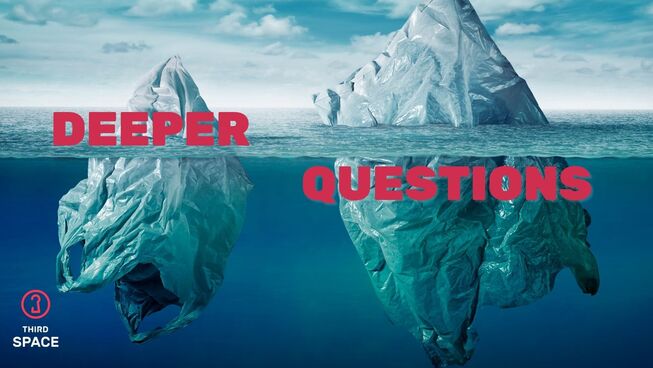The offensive and liberating peace of God

After the US election result, depending on who you were gunning for, you might have felt elated and optimistic. If you didn't get the result you hoped for you might be feeling incredibly depressed and hopeless.
How can we believe in a God of peace in a world full of chaos, division and anxiety?
Peace on Earth
We sing songs of peace on earth at Christmas time. In a messy world we need “peace on earth and good will to men” as declared by the angels. Isn’t that what we want? Don’t our hearts cry out for an end to violence? Don't we yearn for peace? Well, here’s the thing, world peace isn’t what we think it is.
“Glory to God in the highest, and on earth peace with people with whom he is pleased” (Luke 2:14) |
Angels declared peace on earth. But a declaration of peace implies a conflict. This may come as a surprise to most, but it’s the logical implication – a declaration of peace comes at the end of war. If God has declared peace with us, then logically there’s been a war! Whether we realise it or not, without Christmas and Easter, there is hostility between us and God.
The dark side of peace
But, more than that, the dark side of peace, that we don’t really understand is how peace is forged. You see, we have this naive view of peace. We think peace happens when people realise that war is silly and agree to lay down their arms. But that’s just not how peace works.
Peace is an agreement to terms, usually in the favour of the one still holding the sword. So, when Alexander the Great came to the island city of Tyre, the envoys from Tyre proposed peace, claiming Tyre was neutral in Alexander’s war. Alexander’s demanded “either you must open the town to me, or I will take it by assault.”1 The people of Tyre wanted peace – on their terms. Alexander wanted peace – on his terms. So he built a kilometre long land bridge out to the island and sacked the city. Peace was established, but on Alexander’s terms. The Pax Romana was the period of relative stability under Augustus, but it was forged in the crucible of bloody war as Rome conquered all who stood in their way. Peace was maintained by the military might of the Roman war machine.
So, if Alexander the Great or Caesar Augustus is at your gates and offers you their peace, it may not be time to celebrate. You can have peace, but it’s going to be on their terms.
So when God declares peace through his angels (who are best known for laying waste to whole cities by the way), He isn’t proclaiming a vague sense of peace. No, God is declaring peace on His terms – it is with those with whom he is pleased. But here’s the thing – at the end of Luke’s gospel God is no longer holding the sword! God’s peace is established not by the threat of death, but by Jesus’ submission to death, and victory over death. The one with whom we’ve been fighting has died for us, and delivers us from death – if we trust in him; if we accept his peace.
God's Radically Offensive Peace
God’s peace is at once radically offensive – it’s peace on God’s terms – and yet wonderfully liberating – God himself has borne the cost of the peace. The war is over, if we accept the terms of God’s peace – trust and obedience to Jesus.
The amazing thing at Christmas is that God does come to our gates, he offers his peace. Only a fool chooses to fight. Do you want peace? Do you want an end to violence? It is time to come to terms with God’s peace.
But here's the crazy thing about God's peace. Unlike the peace of Alexander which forces our submission, and is only ever a surface peace; God's peace comes after Jesus submits to death. This sacrifice wins us over - it causes a deep commitment to peace for those who declare their allegiance to God. We need God's peace if we are to truly see an end to the violence in our streets.
Need more space to discuss these issues in a calm and supportive community?
1The History of Alexander, Quintus Curtius Rufus 4.2.7
The article has been revised to apply to the 2024 election and was previously addressing distressing events in Australian society. We believe it is helpful for all kinds of struggles and unexpected events.





